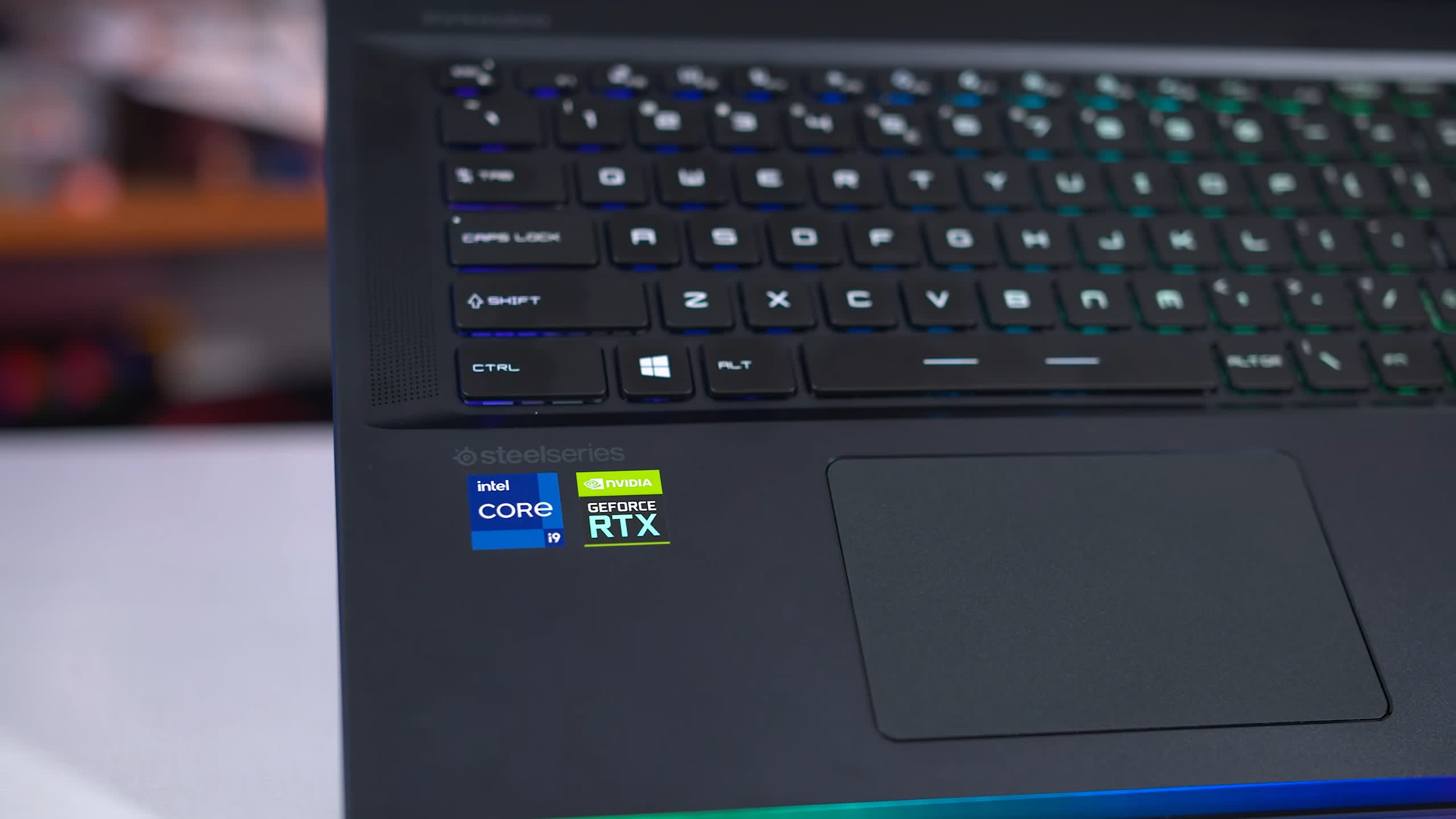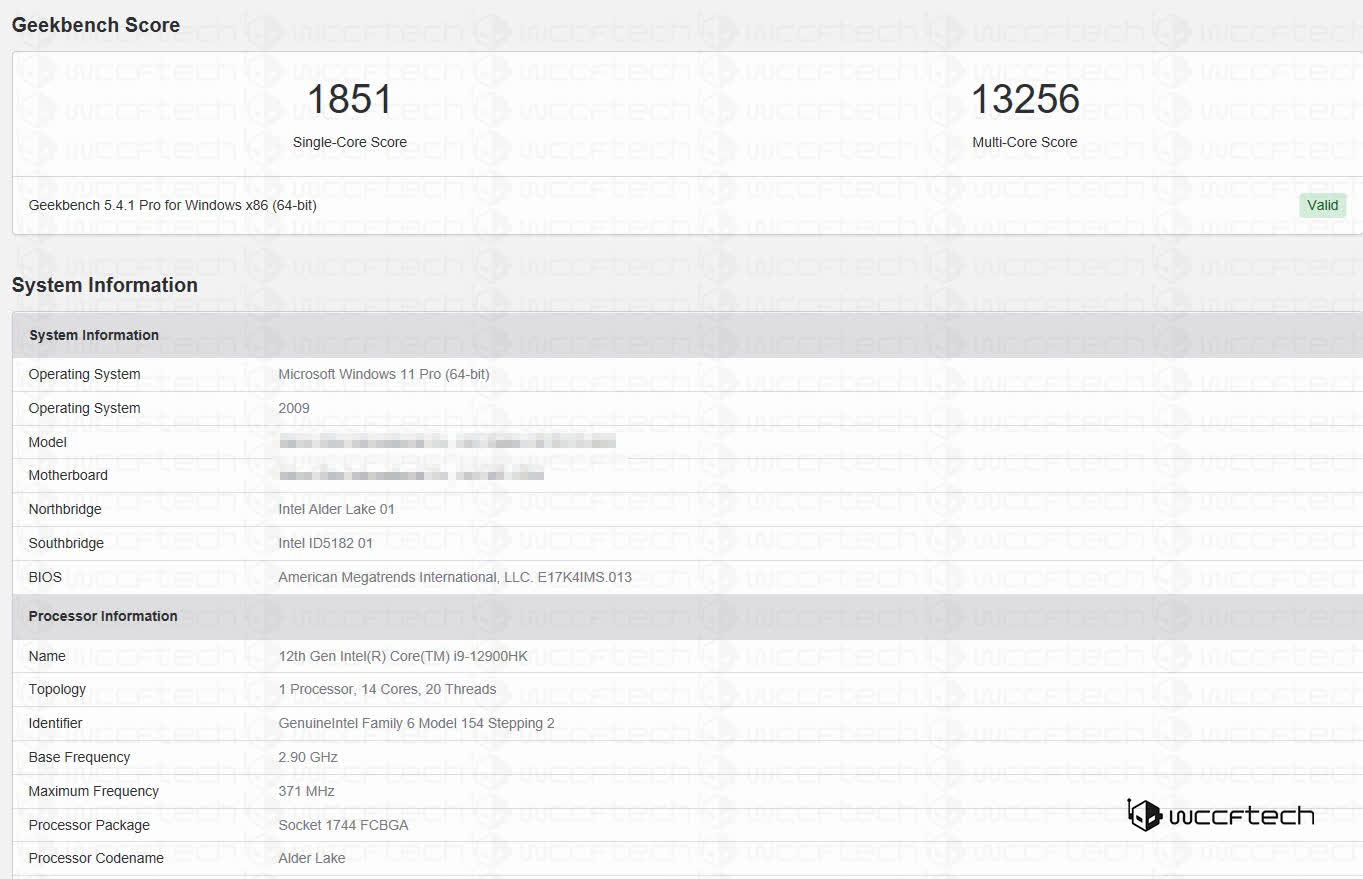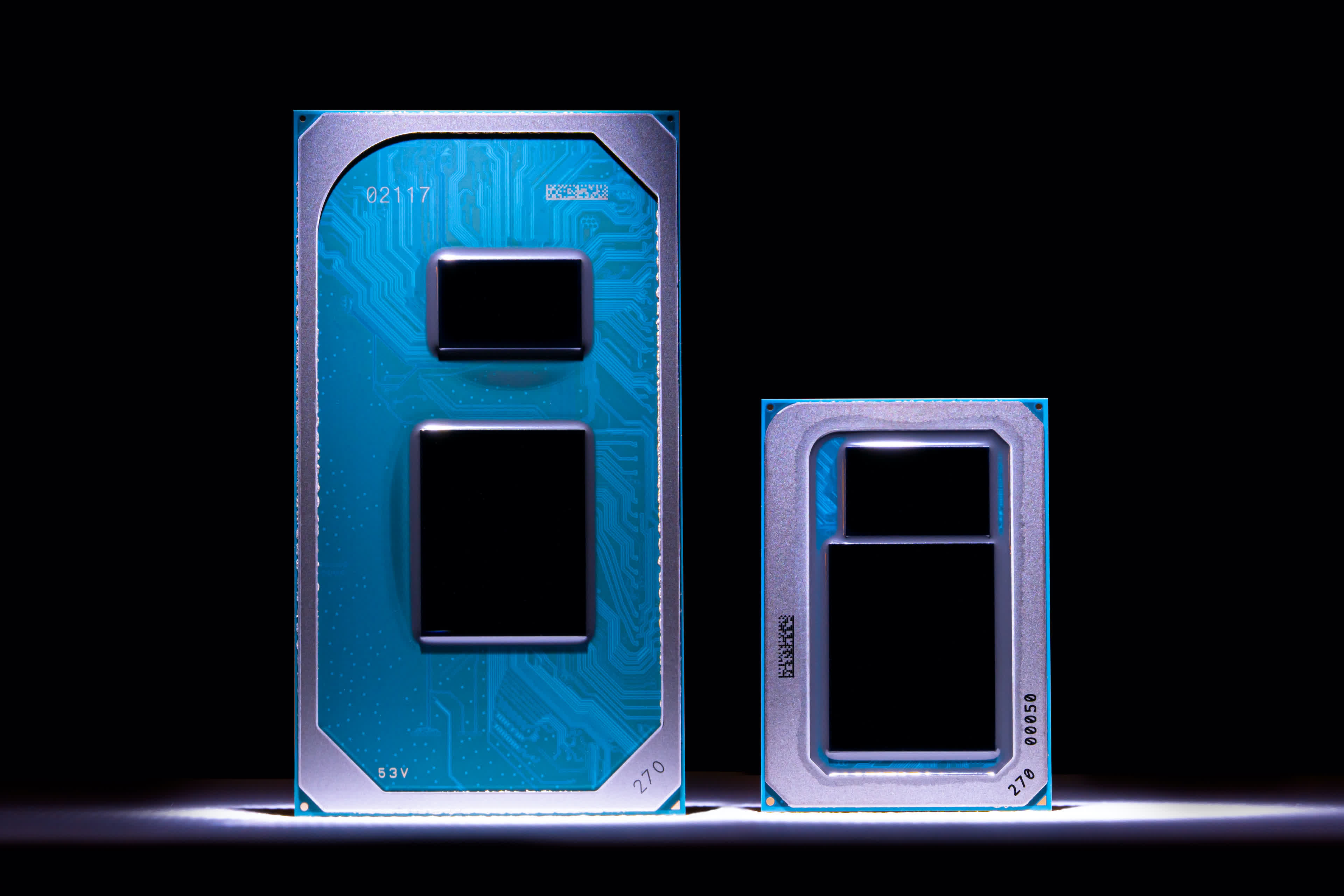In brief: Intel says it's ready to bring the thunder with its upcoming Alder Lake processors. Judging by the latest leaks, the company may indeed have something to prove on the performance front, even if it will likely come at the cost of high power consumption. If you ignore performance-per-watt, Intel's upcoming mobile flagship CPU can hold its own against Apple's M1 Max and M1 Pro, which would be no small feat.

Last week, someone tested an Intel Alder Lake-P engineering sample, giving us the first glimpse at what Team Blue has in store for people who work and play on a laptop. The processor in question was the Core i9-12900H, which is supposed to be the locked multiplier version of Intel’s 12th generation flagship notebook CPU. It’s a 14-core, 20-thread part that could be up to two times more powerful in gaming workloads than Intel’s 11th generation Core i9-11980HK (Tiger Lake) CPU.
Thanks to the folks over at Wccftech, we have a separate benchmark to look at, and this time the Core i9-12900HK is the alleged star of the show. This would be the untamed version of the Core i9-12900H that users can take to new heights through manual overclocking. But more importantly, it seems to compare quite favorably to Apple’s latest custom Arm-based chipsets — the M1 Pro and the M1 Max, both of which have a 10-core CPU with eight performance cores and two energy-efficient cores.

Geekbench is where Apple chipsets tend to shine bright against the competition, but even so, Intel’s yet-to-be-released Core i9-12900HK was able to score 1,851 points in the single-core test and 13,256 in the multi-score test. For reference, Apple’s latest silicon manages around 1,770 points in the single-core test and 12,600 points in the multi-core test. Mind you, this doesn’t paint a full picture and it should’t surprise anyone if the Alder Lake part is only able to achieve these numbers with a higher power consumption, especially since it was manufactured using a less advanced process node.
An even more interesting comparison can be drawn between the unreleased Intel mobile CPU and the previous Tiger Lake flagship as well as its AMD counterpart. It turns out those two CPUs aren’t even in the same league when it comes to the multi-core test, with the Core i9-11980HK sitting at around 9,150 points and the Ryzen 5980HX scoring a more modest 8,217 points.

The Core i9-12900HK also manages to score 14.5 percent higher in the single-core test when compared to the Tiger Lake flagship, which is pretty much in line with the claims made by Intel during its Architecture Day event earlier this year. It’s worth noting the tests were done on Windows 11 so that Intel’s Alder Lake engineering sample could enjoy full software support for its scheduling capabilities, but results may still improve over the coming months.
Overall, this lends some credibility to Intel CEO Pat Gelsinger’s claim that Intel is back with a vengeance. At least on the performance front, it looks like that claim may indeed hold true with Alder Lake. However, it will be interesting to see if Team Blue can keep up with Apple and even AMD, both of which have been quick to innovate over the last few years.
https://www.techspot.com/news/91913-intel-alder-lake-p-sample-beats-apple-m1.html